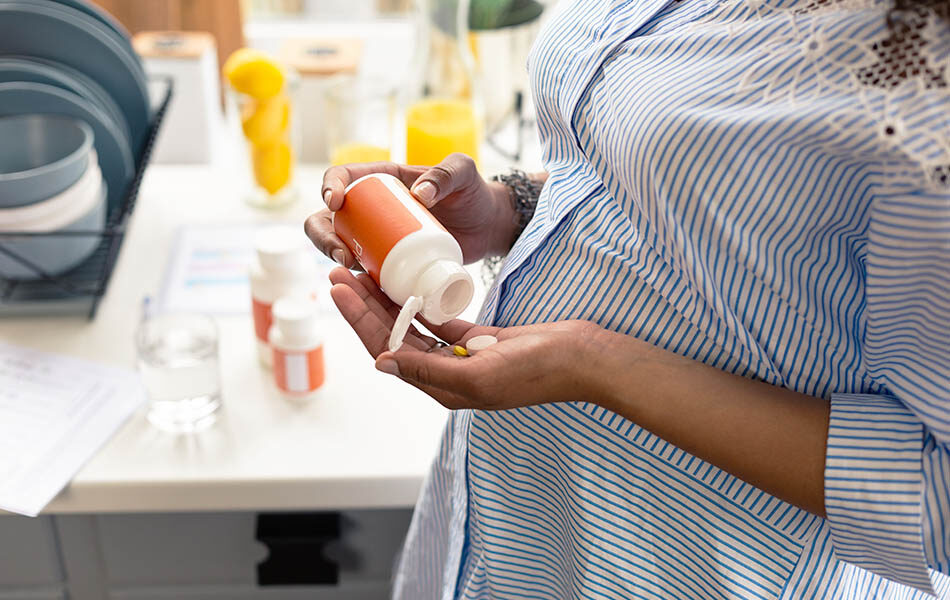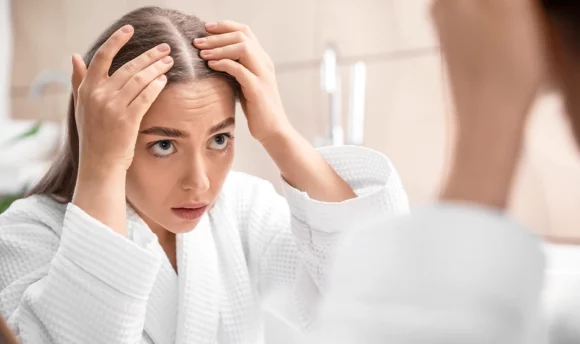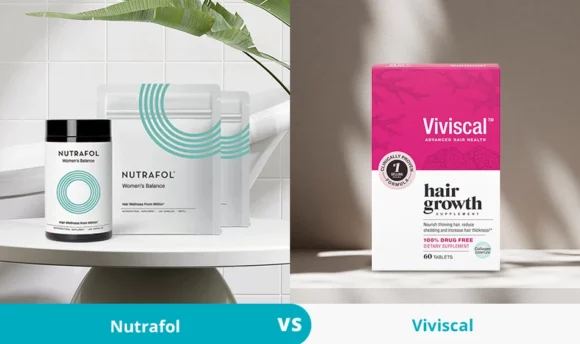Prenatal Vitamins for Hair Growth: A Winning Combination?
Prenatal vitamins are made for pregnant women, as they can help maintain a healthy pregnancy. However, it is also believed that these vitamins may support hair growth. Discover whether prenatal vitamins are the new magic supplements for your hair and how they could replenish your scalp.

Prenatal vitamins are packed with essential nutrients and minerals. These dietary supplements can support pregnant women, but they might also support natural hair growth.
It’s no secret that pregnancy can make your hair look smooth. Some women notice a huge difference in their nails and skin health, too. Most of these benefits come from an increase in estrogen, but prenatal vitamins might also play a role.
You might be tempted to take prenatal supplements for your hair. Discover whether prenatal vitamins encourage longer and thicker hair strands.
Prenatal Vitamins for Hair Growth: Do They Help?
Prenatal vitamins can boost hair growth, but it’s not a good idea to take more vitamins than you need. Folic acid, iron, calcium, and vitamin D are good for your body, but a higher dose will benefit pregnant women more because they need extra minerals.
Consuming a prenatal vitamin daily could have some positive effects, although there isn’t much research to support this belief. Any type of prenatal supplement works best for pregnant women since they need to protect their baby’s health as well.
However, fueling your body with folic acid may stimulate hair growth while iron transports oxygen and red blood cells to the scalp. Both of these components could help your hair grow faster, but that depends on your age, diet, genetics, and hormones.
Pregnant women tend to experience faster hair growth because of their estrogen levels, so taking prenatal vitamins when you’re not pregnant may not make a huge difference but might be harmful to your health.
Why Do Prenatal Vitamins Make Your Hair Grow?
A prenatal vitamin contains a range of important vitamins and minerals. Some of them include folic acid, iron, calcium, and vitamins A, C, D, and E. These magic ingredients could increase your hair growth rate, but this combination may be more effective for pregnant women who need these minerals.
Research suggests that folic acid has a very minimal impact on your hair. It can encourage your body to replenish cells on the scalp, but it won’t cause a significant change. Of course, results can differ for everyone, so it might be an option for people who have thin, graying hair strands.
Iron mainly affects your scalp because it fuels hair follicles with oxygen and red blood cells. A healthy scalp can produce more healthy hair over time. This is why prenatal vitamins could prevent postpartum hair loss.
On the other hand, calcium supports hormone regulation. It helps androgen hormones and biotin enzymes to strengthen hair health.
Just remember that taking prenatal vitamins won’t always work. For those who aren’t pregnant, it’s probably better to use normal multivitamins instead, as the doses of vitamins and minerals are way higher in prenatal vitamins. High amounts of them might lead to mild stomach upset and even more serious health problems.
Is It Safe to Take Prenatal Vitamins for Hair Growth?
Prenatal supplements contain essential vitamins and minerals, so they shouldn’t damage your health. However, taking too much of something could cause some health implications like headaches, bloating, nausea, serious constipation, and low immunity.
If you’re not pregnant, taking prenatal vitamins may not be the best idea. This is because pregnant women typically need more nutrients to grow their babies. Getting too much folic acid, iron, or vitamin D could be a health risk for some.
For example, a high iron intake could trigger constipation and give you stomach cramps. Folic acid, when consumed excessively, could make you feel nauseous and even cause sleep disturbances.
There are daily recommendations for certain nutrients. For example, you need 400mcg of folic acid, 19–20mg of iron, 1,000mg of calcium, and 10–20mcg of vitamin D per day. Pregnant women usually need double this amount to support their baby’s health.
Before taking these supplements for hair health, speak to your doctor. A medical professional can determine whether prenatal vitamins are safe for your personal health. They might recommend you get these vital nutrients from foods instead of supplements designed for pregnancy.
Will Prenatal Vitamins Help With Hair Loss?
Prenatal vitamins will not prevent hair loss, but they can maintain good hair health. Many pregnant women suffer from hair loss during the postpartum period. This is down to hormonal changes and a sudden decrease in estrogen, so they need more vitamins to support their bodies during recovery.
You shouldn’t focus on prenatal vitamins for hair loss. Instead, follow a balanced diet, use nourishing hair products, and avoid heat styling tools. These simple steps could encourage new hair growth over time.
Some people eat specific foods to keep their hair healthy. Some foods include eggs, avocados, berries, salmon, spinach, and sweet potatoes. The more nutrient-dense meals you eat, the healthier your hair will be in the long term.
FAQs
Yes, prenatal supplements could help people with acne because the vitamins support healthy skin development. If you suffer from regular or painful breakouts, always speak to a dermatologist before trying new supplements.
Prenatal vitamins won’t cause hair loss unless you’re taking too much. These supplements are designed for pregnant women, so you could be consuming vitamins excessively. Instead, take a supplement that is suitable for everyone. Anything containing vitamin B, zinc, or iron will be great for hair growth.
No, crushing up vitamins and putting them in shampoo won’t do anything. This is because prenatal supplements are meant to be taken orally. You should only ingest vitamins if you want them to be effective.
A Word From MD
Prenatal vitamins contain many essential nutrients for pregnancy. Women can take these supplements to prevent neural tube defects and fuel the fetus. For non-pregnant women, these vitamins could actually do more harm than good since you don’t need as many nutrients.
It’s best to leave these prenatal supplements to expectant mothers and follow a healthy hair routine. Eating nutrient-rich foods, using natural hair products, and massaging your scalp daily can help stimulate hair growth.
Research suggests that washing your hair only 1–2 times a week is also beneficial. This ensures you’re not stripping the natural oils from your scalp.
Before taking any supplements, speak to a medical professional. Doctors can determine whether a prenatal vitamin is suitable for your long-term health.
Conclusion
You shouldn’t focus on taking prenatal vitamins for hair growth, as they’re only suitable for pregnant women. These vitamins can strengthen your hair, but they can also cause side effects like headaches, constipation, nausea, and stomach cramps.
To achieve long, healthy hair strands, eat nutritious foods and create a sustainable hair care routine.

















































 Select your language:
Select your language: 








